News and Insights
Celebrating Sustainable Gastronomy Day 2024
June 14, 2024
Established by the UN General Assembly in 2016, Sustainable Gastronomy Day has a grand vision that one day every meal will help to sustain a healthier planet. Coming up on Tuesday 18th June, its mission it to encourage diners worldwide to be more mindful of where our food comes from, how it’s grown, and its impact on the environment. It encourages consumers and businesses to support local ingredients, minimize waste, and employ a greener outlook for future generations.
We’ve tapped up some of our global clients from across the travel and hospitality spheres to bring you the very best of their most sustainable gastronomy. A word of warning though… stop reading now if you’re hungry.
Amber at The Landmark Oriental, Hong Kong

Sustainability has been a central tenet at Amber at The Landmark Mandarin Oriental since it opened 18 years ago. Director of Culinary and Food and Beverage, Richard Ekkebus is the driving force, and the restaurant has been recognized both locally and internationally for its efforts in sustainability. It aims to use the most ethical and sustainable ingredients while minimizing Amber’s carbon footprint and the pressure on natural resources, as well as reduce our waste output and focus on social inclusion.
Amber’s dish of heirloom tomato, amao strawberry, AN soymilk ‘burrata’, rose, lemon verbena and extra virgin olive oil is a refreshing, vegetarian-friendly starter of homemade soy burrata served with Japanese Heirloom tomatoes, Fukuoka strawberry, olive caviar and pickled rose.
Belize
This delicious recipe for Lionfish Crudito captures real central American flavor and flair. Prepared by Chef Jennie Staines, it not only tantalizes the taste buds but actively promotes a healthy marine ecosystem. Lionfish are invasive predators that disrupt the delicate balance of coral reefs in Belize. They consume large quantities of native fish species, impacting the overall health of the marine ecosystem.
Encouraging the consumption of lionfish helps control their population and protect the biodiversity of Belize’s reefs. Promoting lionfish dishes raises awareness about the issue of invasive species and the ongoing conservation efforts in Belize. This can lead to increased public support for these initiatives and encourage others to get involved.
Lionfish Crudito
Ingredients:
- Lionfish fillet; 4 oz
- Yellow bell pepper; 1 small
- Habanero; 1
- Limes; 2
- Beets; 1
- Fresh corn on cob; 1
- Radish; 1 thinly sliced
- Micro radish
- Olive oil; 1.5 tbsp
- Orange; 1
- Basil oil
- Salt and Black pepper; to taste
Directions:
- Roast yellow bell pepper and habanero over open flame until charred. Allow to cool, peel and clean properly (devein habanero).
- Place yellow bell pepper and ¼ of the habanero (amount of habanero can be adjusted for preferred heat level) in blender along with the juice of 1 lime and 1 tablespoon of olive oil. Blend and add salt and pepper to taste. Set aside for assembly
- Peel one beet and blend with the juice of 1 lime and 1 orange and then pass through a colander.
- In a bowl, fully submerge the lionfish fillet in the blended juice from step 3 for 5 minutes. Remove the fillet, dry and slice.
- Set water to boil and add the corn for 3 minutes. Remove corn from boiling water and char over open flame. Let cool and remove kernels.
- In a mixing bowl, add kernels, ½ tablespoon of olive oil, finely chopped habanero, salt and black pepper to taste and mix.
- Assemble with bell pepper sauce first, lionfish second, corn relish third and garnish with radish, micro radish and drizzled basil oil.
Destin-Forth Walton Beach, Florida

It’s not just Belize serving up this pesky pesce. Head to Destin-Fort Walton Beach, FL to taste lionfish sushi from local favourite waterfront seafood restaurant, Harbor Docks. Using lionfish on its menu, Harbor Docks, among various other restaurants in the destination, help support Destin’s sustainability missions in several ways.
Destin-Fort Walton Beach also hosts an annual event, The Emerald Coast Open (ECO) each year that encourages divers and fishermen to hunt lionfish and remove the dangerous species from the water, with fish then supplied to the local eateries with their catches. Within the destination, several restaurants serve lionfish every way imaginable, from lionfish tacos, to seasoned and fried with different spices, to help support Destin’s sustainability ventures.
The Dolder Grand, Zürich, Switzerland

Standing proud above Zürich – renowned for its gastronomy scene – and celebrating its 125th anniversary, The Dolder Grand boasts a sustainable vegan and vegetarian dining concept, blooms. Open exclusively during the spring and summer months, blooms is situated amid lush vegetable beds, aromatic herbs, and bountiful fruit bushes, offering a serene outdoor dining experience.
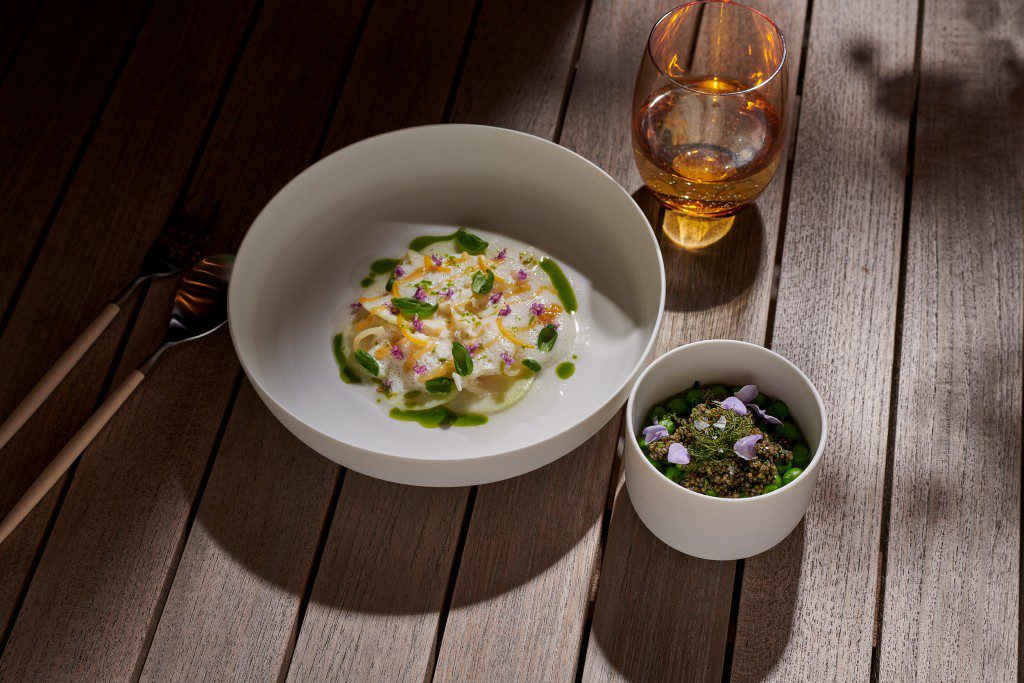
Crafted by two Michelin star chef, Heiko Nieder, the menu showcases light, refined creations made of all organic, regional, and seasonal ingredients sourced directly from the hotel’s own kitchen garden and local producers. The menu pays homage to Swiss culinary heritage and offers a delightful array of four to six courses, with dishes ranging from fresh garden salads and cabbage wraps to fruit desserts. Designed as a rooftop terrace restaurant, blooms can accommodate up to 36 guests under its awning, providing sheltered tables with sweeping views over Lake Zürich and the city below.
The Nines Hotel, Portland, Oregon
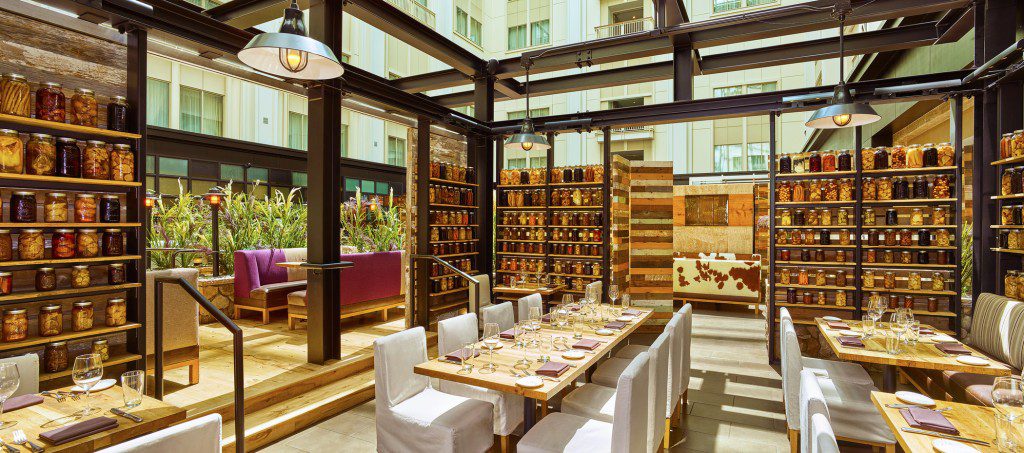
A beacon of luxury and sustainability in the heart of Portland, The Nines stands out not just for its opulent accommodations but also for its groundbreaking culinary practices. At the core of their philosophy is a commitment to sustainability, which permeates every aspect of their food and beverage operations. Let’s delve into the innovative and eco-friendly initiatives that make dining at the Nines a truly unique experience.
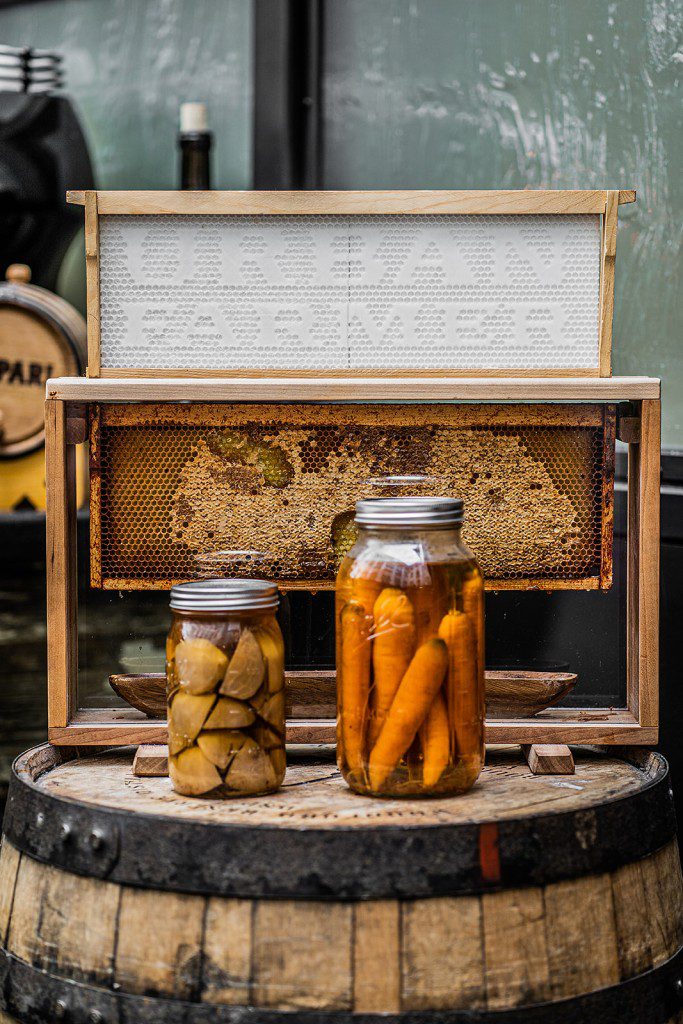
From the on-site mushroom terrarium which allows the hotel to grow from spores, creating a closed-loop system that supplies fresh mushrooms directly to their kitchens, to house-made pickled fruits and vegetables that adhere to their no-waste policy, The Nines engages in creative practices to help meet its sustainability goals.
The two in-house restaurants, Departure and Urban Farmer, are Gold Certified by Portland’s Sustainability at Work Program, with key processes including fresh produce grown in their rooftop garden, homemade products from wax candles and soap to herbal tea, using garden produce and fat from meats.
They also adhere to the guidelines of the Monterey Bay Aquarium’s Seafood Watch, choosing seafood that is rated “better” or “best” for sustainability. This commitment helps protect ocean ecosystems and supports responsible fishing practices whilst supporting local and organic sourcing.
Feuille, Hong Kong
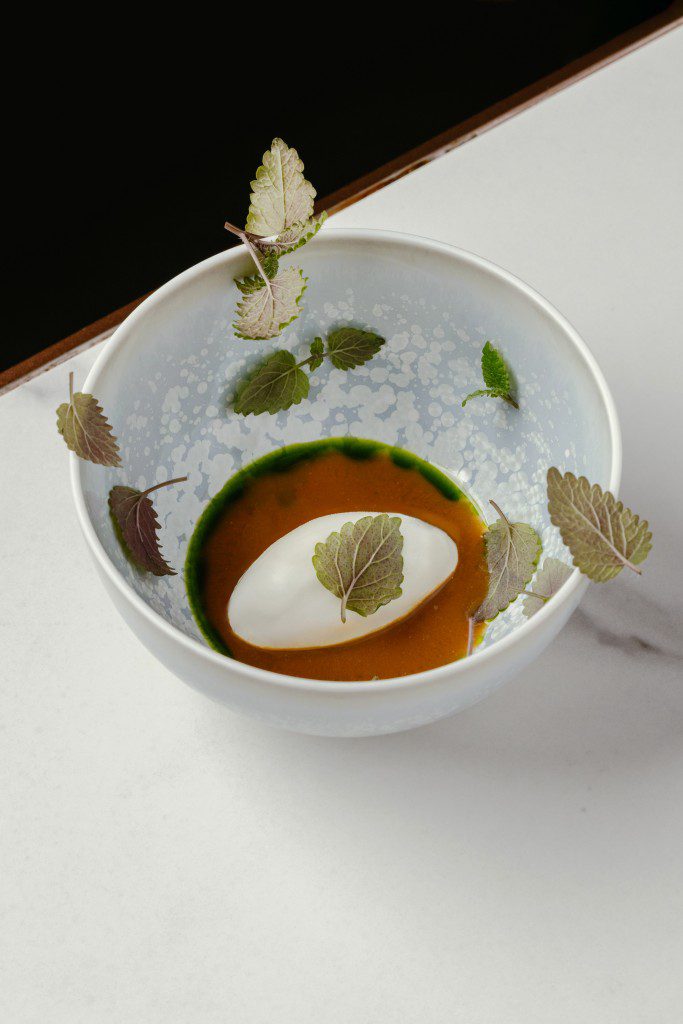
Home to a Michelin star and a Michelin Green Star for Sustainable Gastronomy, Feuille’s dish of tomato, marigold and lemon balm is crafted using locally sourced tomatoes while employing a resourceful approach by repurposing marigold stems to create a captivating aromatic vinegar. This delicacy is elegantly presented as a pre-dessert, intended to be savored after the hot dishes. With its light and refreshing composition, this simple yet refined pre-dessert serves to invigorate the palates of the restaurant’s guests.
The Tryall Club, Montego Bay, Jamaica
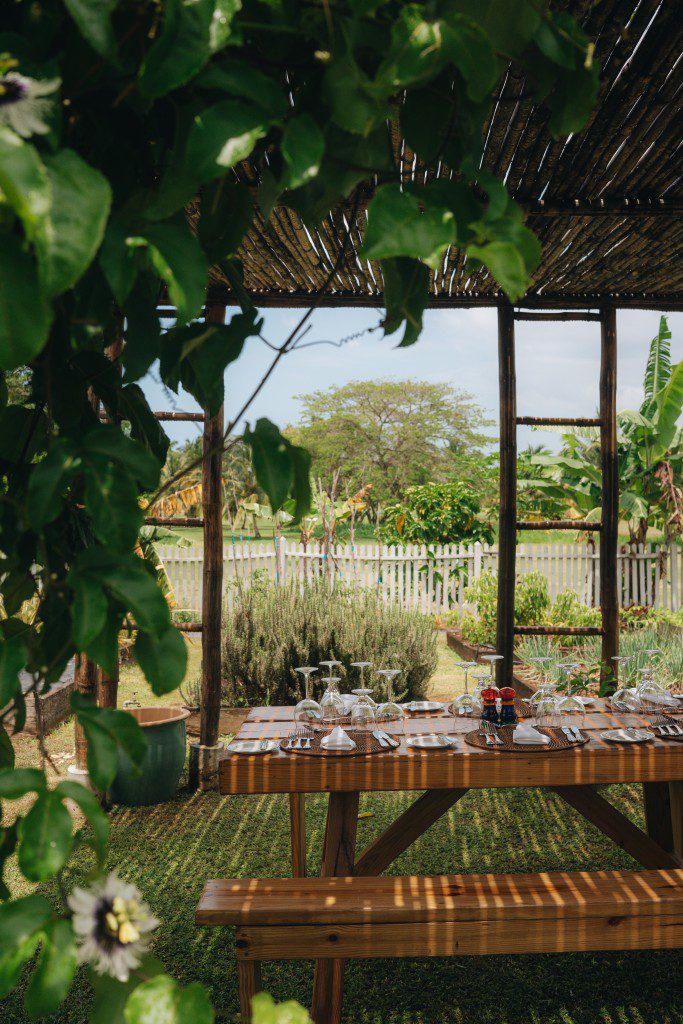
The Organic Garden planted right on the The Tryall provides sustainable and innovative dining experiences for guests. By growing crops right on the club’s property and turning the space into an outdoor restaurant venue, The Tryall Club seamlessly delivers unique and bespoke experiences for all. With a combination of local sunshine, showers, and water from the surrounding natural springs, the team is able to grow a variety of lettuce leaves, arugula, callaloo, fennel, four unique types of tomatoes, sorrel, mango, ackee, a variety of basil, bok choy, and plenty more tasty, fresh ingredients.
Chefs on property incorporate the hand grown crops within authentic Jamaican dishes such as, Ackee and saltfish, Jamaican Corn Soup, Callaloo, and more. Guests have shared their love of the local dishes that produce such magnificent flavour combinations, only able to be replicated on fertile Jamaican land.
Ireland
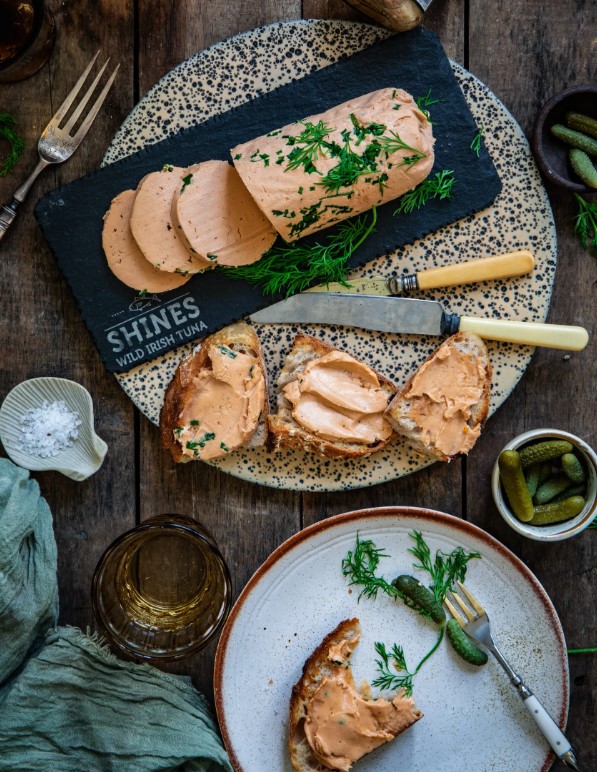
The island of Ireland is no stranger to sustainable practice when it comes to food, with a plethora of its most famous dishes secretly sustainable in their creation. Carageen Moss pudding includes seaweed, one of the most sustainable ingredients of all given its coastal abundance and the use of which in cooking is an old Irish tradition. The hearty colcannon uses leftover mashed potato as its key ingredient, flying the flag against food waste, while Ireland also has some of the best oysters in the world, great for cleaning water ecosystems with Carlingford, Donegal and Sligo must-visits for the molluscs.
Donegal hotspot Shines Seafood in Donegal uses sustainably-caught local seafood including tuna, sardines and mackerel in its full product range. Their recipe for tuna pâté is one of our favorites.
Irish Tuna Pate
By Chef Nicky Cullen of Mary Barry’s Restaurant, Kilmore, Co. Wexford
Ingredients:
- 1 Jar of Shines Albacore tuna (drained)
- 6 oz Kerry gold butter
- 1.5 tablespoons Ballymaloe mayo
- 1.5 tablespoons Ballymaloe relish
- 2 wedges of lemon, juiced
- ½ teaspoon or less of Cracked Black pepper
Method:
- Take your butter out of the fridge for 15 mins before use to take the chill off, but don’t let it get to room temperature.
- Blend all ingredients in a food processor. Stop 2 – 3 times and scrape down the sides. Blend until very smooth. This should take roughly 2 minutes.
- Cut some parchment paper. This will be used to roll the mixture and roll like a Swiss roll.
- Place your mixture onto the parchment paper and roll.
- Chill in the fridge overnight.
- Take out of the fridge and sit for 15 to 30 mins.
Optional:
- Cut a new sheet of parchment paper, cover the paper with fresh cut chives or parsley. Roll the pate over the chives to stick like a crumb on the outside.
For more information about Sustainable Gastronomy Day, visit the UN website here.